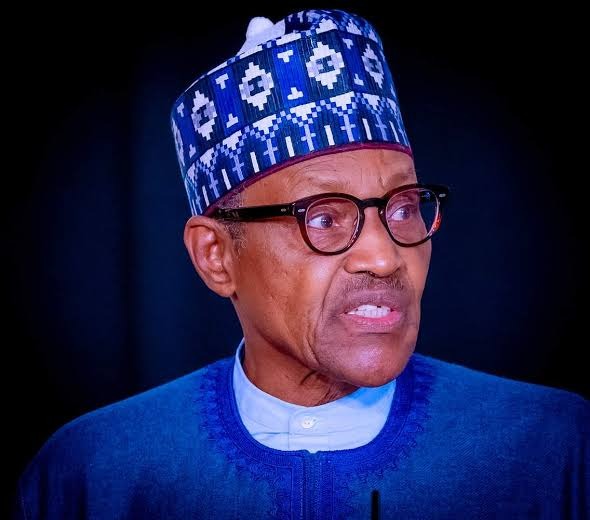Paragraph 1: A Legacy of Reform Amidst Challenges
The late former President Muhammadu Buhari’s administration has been characterized by the Organized Private Sector (OPS) as one marked by a commitment to reform amidst significant economic and global turbulence. The Lagos Chamber of Commerce and Industry (LCCI) and the Manufacturers Association of Nigeria (MAN) acknowledged the challenging landscape Buhari navigated, including oil price crashes, recessions, the COVID-19 pandemic, and security concerns. Despite these hurdles, the LCCI emphasized Buhari’s focus on combating corruption, stemming revenue leakages, and implementing crucial structural reforms, including infrastructure development. This dedication to reform, even under pressure, forms a cornerstone of Buhari’s legacy.
Paragraph 2: Landmark Legislation and Policy Initiatives
The Buhari administration achieved notable legislative and policy milestones. The Petroleum Industry Act (PIA) of 2021 stands out as a transformative achievement, ending decades of legislative stagnation in the oil and gas sector. This legislation established a modern regulatory framework, reorganized national oil institutions, and created equity-based development funds for host communities. Another key achievement highlighted by the LCCI was the Companies and Allied Matters Act of 2020, which streamlined corporate processes, enabled single-member companies, and enhanced transparency through beneficial ownership disclosures. These legislative actions reflect a focused effort to modernize and strengthen key sectors of the Nigerian economy.
Paragraph 3: Fiscal Transparency and Infrastructure Development
Beyond legislative accomplishments, the Buhari administration implemented various policies and initiatives aimed at improving fiscal transparency and promoting infrastructure development. The annual Finance Acts from 2019 to 2022, along with amendments to the Deep Offshore and Inland Basin Production Sharing Contract, demonstrate a commitment to fiscal reform. Executive Orders, particularly EO 003 and EO 005, prioritized local content in procurement, further bolstering domestic industries. These measures, according to the LCCI, aimed to build investor confidence and modernize the private sector environment. Furthermore, significant infrastructure projects like the Second Niger Bridge, the Lagos-Ibadan and Itakpe-Warri rail lines, and extensive road rehabilitation projects represent tangible investments in the nation’s infrastructure.
Paragraph 4: Institutional Reforms and Economic Diversification
Buhari’s focus on institutional reforms also included the implementation of the Treasury Single Account (TSA), the Integrated Payroll and Personnel Information System (IPPIS), and the Whistleblower Policy. These initiatives were designed to enhance fiscal transparency and accountability within the government. While acknowledging diverse perspectives on Buhari’s performance, the LCCI emphasized the long-term relevance of his emphasis on systems building, local content development, and governance structures aimed at promoting self-sufficiency. The organization urged future administrations to build upon these foundations, continuing to advance policies that support enterprise, innovation, and inclusive growth. This call for continuity underscores the significance of the groundwork laid during Buhari’s tenure.
Paragraph 5: Mixed Reactions and Controversial Policies
Despite the positive assessment from the OPS regarding certain economic reforms, Buhari’s legacy is met with mixed reactions. Critics point to policies that they argue exacerbated poverty, such as the rice import ban intended to boost local farmers, which ultimately led to food shortages due to insufficient domestic supply. The controversial Naira swap policy, implemented near the end of his second term, purportedly aimed to curb vote-buying during the 2023 general elections. However, it resulted in widespread hardship due to cash shortages and the commodification of the scarce new naira notes. This policy was subsequently discontinued by the succeeding administration of President Bola Tinubu. These controversies surrounding specific policies contribute to the complex and multifaceted nature of Buhari’s legacy.
Paragraph 6: A Complex Legacy and Call for Continuity
MAN, while acknowledging the economic headwinds faced during Buhari’s presidency, praised his attention to the manufacturing sector’s importance and his willingness to engage with manufacturers to address sectoral challenges. The organization called for reflection on Buhari’s policy decisions and a renewed commitment to fostering sustainable industrial growth. Buhari’s legacy remains a subject of debate, encompassing both praise for reform efforts and criticism for policies deemed detrimental. The contrasting viewpoints underscore the complexities of his two terms in office. The OPS’s call for future leaders to build upon the foundations laid by the Buhari administration indicates a recognition of the long-term implications of his policies and the need for continued progress in key areas.














